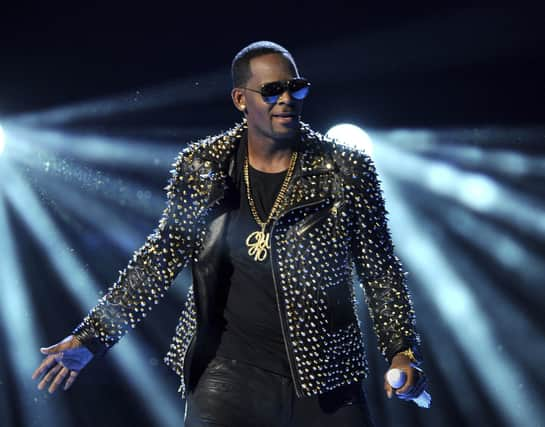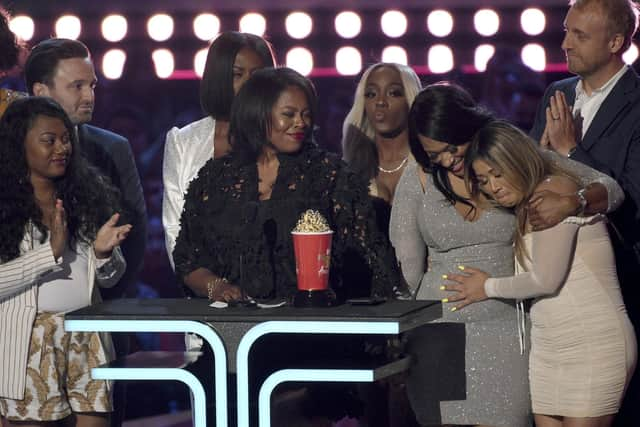Who is R Kelly and what is racketeering? Here's who the 'I believe I can fly' singer is - and why it took so long for him to be convicted for his crimes
This article contains affiliate links. We may earn a small commission on items purchased through this article, but that does not affect our editorial judgement.


The R&B superstar known for his track ‘I believe I can fly’ has faced considerable allegations over the years of grooming, trafficking, sexual abuse and assault.
On Monday 27 September, a jury of seven men and five women found Kelly guilty of racketeering on their second day of deliberations.
Advertisement
Hide AdAdvertisement
Hide AdThe charges were based on an argument that the entourage of managers and aides who helped the singer meet girls - and keep them obedient and quiet - amounted to a criminal enterprise.


But who is R Kelly – and what does racketeering actually mean?
Here’s what you need to know.
Who is R Kelly?
Born Robert Sylvester Kelly, R Kelly was a successful R&B artist who made a name for himself with a number of hit songs and songwriting successes, but used his position as a famous musician to manipulate and abuse women and children across the United States.
The singer has faced allegations of such behaviour since the early 1990s, with several women coming forward to complain of having been abused and exploited by R Kelly.
R Kelly married singer Aaliyah when she was 15-years-old, compared to his 27 years of age, in a secret wedding ceremony in 1994.
It later emerged that the duo had lied about Aaliyah’s age on the marriage certificate, thus declaring the union void and it was annulled in 1995.
In 2002, R Kelly was charged with 21 counts of the production of child pornography, but was eventually acquitted of all charges.
Advertisement
Hide AdAdvertisement
Hide AdAnother 12 counts for the same crime were levied against Kelly between 2002 and 2004, yet charges were dropped once again.
The singer’s fame and success continually overshadowed numerous lawsuits, complaints and tales of Kelly’s abusive and predatory behaviour – with these only gaining mainstream recognition in the late 2010s.
The Lifetime documentary Surviving R Kelly was released in 2019 and helped to strengthen prominent campaigns such as #MuteRKelly, which lobbies the music and hospitality industries to stop the promotion of the singer’s music.
The documentary saw harrowing accounts of alleged child sexual exploitation and abuse, with parents unable to find daughters who had been reportedly abused and trafficked by Kelly.
What is racketeering?
The outcome of the first of two federal indictment facing R Kelly saw the Brooklyn, New York court jury of seven men and five women find Kelly guilty on all charges of sexual trafficking and racketeering.
Racketeering is often used to describe an organised ring of criminal activity which deploys coercion, exploitation, fraud or other illegal activity to generate profit or similar benefits.
The Brooklyn trial began on 18 August and saw over 40 witnesses take to the stand with testimonies of Kelly’s crimes, many of them doing so pseudonymously or anonymously for protection.
Advertisement
Hide AdAdvertisement
Hide AdKelly was indicted for the charges in Brooklyn and Chicago in 2019 following the release of the harrowing Surviving R Kelly documentary.
Why has it taken so long to convict R Kelly for his crimes?
The lengthy allegations facing the singer have led to outrage that R Kelly is only now being held to account for his crimes – almost 25 years on from when severe accusations first made it to US court rooms.
It is now widely believed that Kelly’s considerable influence and entourage played a key role in preventing victims from coming forward with their stories, as well as the fact that the experiences of young black women were dismissed by the mainstream press and authorities.
Oronike Odeleye, co-founder of #MuteRKelly, told the New York Times: "This is the culmination of the movement of so many women who having being trying so long to have their voices heard.
"We have never had full ownership of our bodies.
“And we’re at a moment where Black women are no longer accepting that as the price of being Black and female in America.”
Many of the accusers also had to break non-disclosure agreements that Kelly made them to sign in order to go on the record with their allegations.
In court, assistant US Attorney Maria Cruz Melendez argued that Kelly was a serial abuser who "maintained control over these victims using every trick in the predator handbook".
Advertisement
Hide AdAdvertisement
Hide AdThe defence labelled the accusers "groupies" and "stalkers".
Defence attorney Deveraux Cannick questioned why the alleged victims stayed in relationships with Kelly if they thought they were being exploited.
"You made a choice," Mr Cannick told one woman who testified, adding, "You participated of your own will."
Additional reporting by AP Reporter Tom Hays
Rape Crisis Scotland helpline is free to call on 08088 01 03 02 every day, 6pm to midnight.
Scottish Women’s Aid: 0800 027 1234
